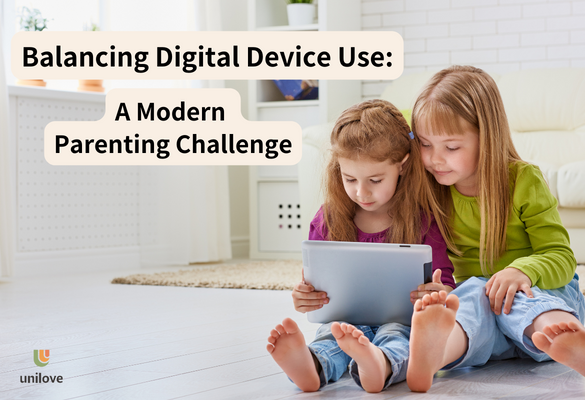Parenting style is a huge determinant factor when it comes to the behavior and development of children. Modern society has recognized this and now places more consideration when choosing a parenting style. There are many factors, such as cultural background, social class, and economic background, that influence one's parenting style. But ultimately, a parent must choose their parenting style wisely as it will set the tone for how one interacts with their child and, consequently, how their child will interact with society.
Therefore, this article will discuss the different types of parenting styles and their impact on a child's development.
4 Main Parenting Styles And Their Impact On Child Development
According to research done by Eleanor Maccoby and John Martin, which was based on the work of developmental psychologist Diane Baumrind, parenting styles can be classified under two dimensions - demandingness and responsiveness.
Demandiness represents a parent's desire to control their child's behavior. Responsiveness refers to a parent's willingness to meet their child's demands and how sensitive they are to their child's emotional and developmental needs. Accordingly, based on the varying degrees of demand and responsiveness, parenting styles can be divided into four main parenting styles,
- Authoritative parenting - high demandingness with high responsiveness
- Authoritarian parenting - high demandingness with low responsiveness
- Permissive parenting - low demandingness with high responsiveness
- Uninvolved parenting - low demandingness with low responsiveness
Authoritative Parenting
This is the most democratic parenting style. Though authoritative parents have high expectations for achievement and maturity from their children, they are also warm and responsive. Authoritative parenting involves setting rules and enforcing boundaries in a rather transparent manner - they provide reasoning for their actions and take their children's opinions into consideration. They also constantly provide guidance and encourage independence and autonomy in their children. Even their disciplinary styles are supportive and serve to teach them a lesson instead of being mindlessly punitive.
As a result, children raised by authoritative parents prove to be the most well-adjusted. Due to the active role the parents take in their child's life without being too intrusive and restrictive, these children grow up self-aware and imbued with a strong sense of principle and morality. They appear to be happier and more independent and do well in academic and social settings. They also tend to have better mental health and are less likely to have violent tendencies. Their relationship with their parents is good, and they can develop secure attachments as they grow older.
Authoritarian Parenting
Authoritarian parenting can be described as a very Dickensian type of parenting - parental control reigns supreme. It lacks the democracy and transparency of authoritative parenting. Authoritarian parents demand blind obedience from their children without any explanation provided. Thus it is also known as the disciplinarian parenting style.
Since authoritarian parents perceive themselves to be authority figures, they use stern discipline and corporal punishments to enforce their authority on their children. This is mostly done with the purpose of gaining behavioral and psychological control over their children. Authoritarian parents are rather like dictators. They seek to coerce their children into recognizing the hierarchical distinction between them and their parents.
The authoritarian parenting style does not encourage two-way communication - any attempts taken by the child to reason or express their opinion is seen as backtalk and insolence. Authoritarian parents try to justify their unresponsiveness to their children's needs and harsh discipline by insisting that it will toughen them up and make them more resilient.
Consistent exposure to an abusive environment, such as an authoritarian parent, is very destructive to a child's development. Quite the contrary to children of authoritative parents, they are unhappy, less independent and filled with insecurities. Since their self-esteem is lower, they tend to perform worse academically and have low social competence. They exhibit more rebellious behavior and are prone to depression and substance abuse. They also tend to lash out more and internalize their problems. Children of authoritarian parents have been linked to disorganized attachment and avoidant attachment.
Permissive Parenting
Permissive parents, also known as indulgent parents, are those who set very few parental rules. The few vague boundaries that they do set are also very reluctantly enforced. Though they are warm and very responsive to their child's needs, they fear disappointing their child and, as a result, are very reluctant to say no.
Children of permissive parents have a worse developmental outcome than their authoritative and authoritarian counterparts. Never having been aptly disciplined, these children are unable to follow clear rules and lack self-control and emotional regulation. While their self-confidence is low, as they have grown to depend on their parents, they also have egocentric and selfish tendencies. Their sense of entitlement causes them to encounter more problems in social interactions and relationships. Children who grew up under the permissive parenting style are linked with ambivalent attachment, which is a very insecure type of attachment.
Uninvolved Parenting
This is the most indifferent and disengaged parenting style. Neglectful parents do not set firm boundaries, and neither are they responsive to their children's needs and lives. These neglectful parents are often preoccupied with their own problems, such as past trauma, abuse, depression and/ or emotional neglect that they had faced as children.
Out of the four main parenting styles, the children of neglectful parents have the worst child developmental outcome. This includes poor academic performance and increased impulsiveness, as they lack the required guidance from their own parents. Their emotional self-regulation is abysmal, and they tend to engage in self-destructive behavior such as substance abuse and alcoholism. They also have many mental issues that often extend to suicidal behavior during their adolescence and adulthood.
Final Words
Thus, it can be concluded that different parenting styles have vastly different impacts on child development. But, decades of parenting research have clearly proven that authoritative parenting is the most effective parenting style, and it is highly recommended by psychologists and psychiatrists. Yet, in some cultures, authoritarian parenting proved to be the most effective when concerned with academic performance.
But, overall, if one is concerned about their child's overall development - ranging from emotional growth to mental development - the best parenting style to adopt is authoritative parenting.



